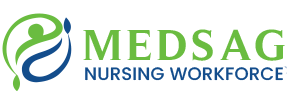As a nurse, you know that documentation is a critical aspect of your job. Proper documentation ensures that patient care is accurately recorded and communicated, legal and regulatory requirements are met, and quality of care is improved. In this blog post, we’ll explore the importance of documentation in nursing and provide tips and strategies for nurses in long-term care and hospitals.
Types of Documentation in Nursing
Nurses are responsible for a variety of documentation, including patient charts and medical records, incident reports, medication administration records, and progress notes. Each type of documentation serves a different purpose, but all are important for providing accurate and comprehensive patient care.
Legal and Regulatory Requirements for Nursing Documentation
Meeting legal and regulatory requirements is essential for nurses to avoid legal issues and ensure patient safety. Requirements can vary depending on the state, healthcare facility, and type of documentation. Key requirements include HIPAA, CMS, and state regulations.
Best Practices for Nursing Documentation
Following best practices for nursing documentation can improve the accuracy, clarity, and timeliness of documentation. These practices include using clear and concise language, documenting in a timely manner, recording information accurately and objectively, and maintaining confidentiality and privacy.
Tips for Improving Nursing Documentation
Improving nursing documentation can be challenging, but there are several strategies that can help. These include using templates and standardized forms, double-checking for accuracy and completeness, collaborating with other healthcare professionals, and seeking feedback and support from colleagues.
Challenges and Pitfalls to Avoid in Nursing Documentation
Common documentation errors and mistakes include illegible handwriting, incomplete or missing information, and subjective or biased language. Risks associated with incomplete or inaccurate documentation include poor patient outcomes, legal issues, and decreased quality of care. Nurses can address these challenges by practicing good time management, seeking additional training or resources, and prioritizing communication and collaboration.
Conclusion
Documentation is a crucial aspect of nursing that should not be overlooked. By following best practices, improving documentation skills, and avoiding common pitfalls, nurses can enhance patient care, meet legal and regulatory requirements, and ensure the accuracy and completeness of patient records. As a nurse, it’s important to prioritize documentation and seek out additional resources and support to continually improve your skills.
In summary, documentation is a crucial aspect of nursing that requires attention to detail and compliance with legal and regulatory requirements. Following best practices and avoiding common pitfalls can enhance the accuracy and completeness of patient records and improve patient care. By prioritizing documentation and seeking out additional training and support, nurses can continually improve their documentation skills and contribute to better patient outcomes.

